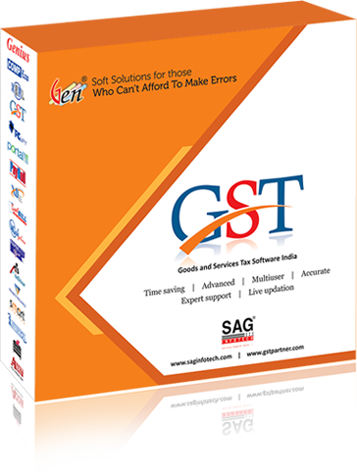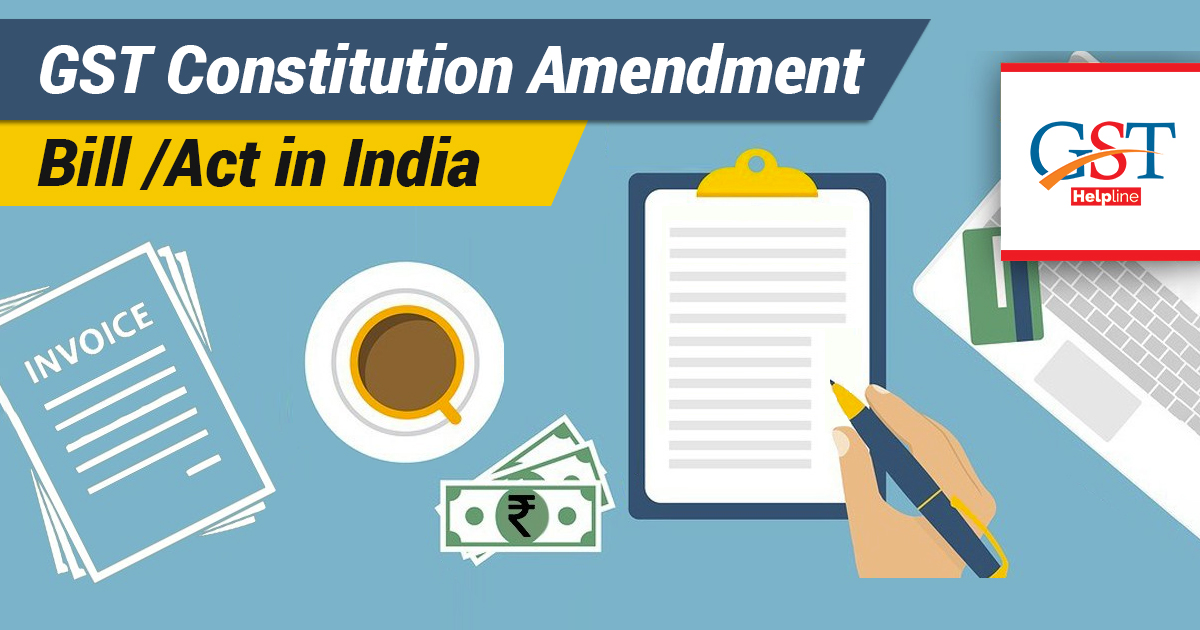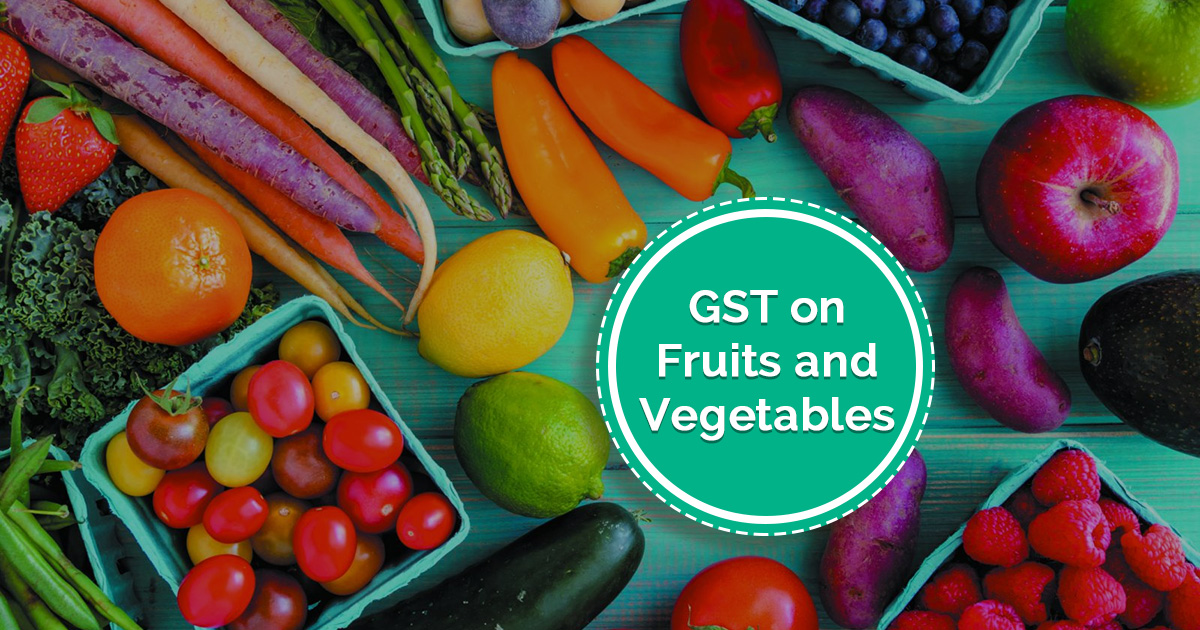The One Hundred and First Amendment Bill, commonly known as GST Amendment Bill – GST Constitutional Act in India, is a draft that was officially passed by the Government of India on August 8, 2016 to propose a unified indirect tax system in the country.
The GST was officially introduced in the country on 1 July 2017, following the various discussions about its applications, implementations, benefits, impacts, etc. The Goods and Services Tax (GST) is a comprehensive, indirect and destination-based tax system that has replaced all the existing indirect taxes, including VAT, Excise duty, service tax, etc., being levied across the country.
A few changes were made in the Constitution of India to define the roles of the state governments and the central government in the GST tax liability, payment, compliance, their part in the revenue and other financial terms between the governments. This is what is called the 101st amendment of the constitution.
Contents
Major Amendments in GST Bill
The GST amendment bill is the official law draft that was passed by the Parliament to approve the implementation of GST in India. It now has become the GST amendment act.
Ever since the first GST law draft was passed in June 2016, many major and minor amendments have been made in the GST Act. Here are some of the major GST bill amendment proposals.
Download 101st GST Constitution Amendment Act, 2016 in PDF
GST Law for the State of Jammu and Kashmir
As per the latest GST amendment, it has been confirmed by the J&K Finance Minister Haseeb Drabu that the GST will be applied in the state of J&K, but having a separate constitution and special legislative provisions, the state might pass CGST & IGST separately from SGST.
GST Applicability on the Sale of land/Building
As per the initial definition of GST, the term ‘goods’ will cover all the movable properties, except for money and securities, and ‘services’ will cover anything other than goods. However, it was being assumed that the Government may also apply GST on the purchase/sale of immovable properties (land and building), in addition to the existing Stamp duty.
As per the revised law, the Government has clarified that there will be no GST on the sale of land and/or buildings, whereas the stamp duty will continue to apply on this. Renting and leasing of lands/buildings, however, will be under the cover of GST. The sale of under-construction buildings will also be liable for GST and so will the works contract including the construction works.
It is being hoped that the sale of land/building may also be included under GST within one year of the implementation of GST in the country.
Petroleum products might come under GST
As of now, petroleum products, including petrol, crude oil, diesel, natural oil, etc.) have been kept out of GST coverage. However, it is being hoped that the government might soon decide to include the petroleum products under GST.
If that happens, it will be very beneficial for the economy of the country as well as for the common people. The prices of such products are expected to go down significantly after inclusion under GST. This will also increase the productivity and revenue of various business associated with this sector.
Change in GST Composition Rates
An amendment was made in the GST law to reduce the composition rates to further assist small traders and manufacturers. GST composition scheme has many advantages but also some restrictions, such as there is no ITC available to dealers registered under this scheme and it is not applicable to interstate transactions. The new composition rates are as below:
- For traders – 0.5% GST instead of previous 1% tax rate
- For manufacturers – 1% GST rate instead of previous 2.5% tax
- For restaurants – 2.5% GST rate on composition
- No GST for composition registered service providers
Unlike before, a composition eligible dealer is no longer required to take the permission of a GST officer in order to register for the composition scheme.
Download GST composition Rules in PDF
GST on Gifts by Employers to Employees
Earlier, it was proposed that any supply of goods and/or services in the form of gift between related persons, including employee and employer, will be treated as a GST applicable supply and a tax be levied on the same. A change was made to this act, according to which the gifts worth Rs. 50,000 or less by an employer to an employee will not be liable to tax. However, GST will be applicable on gifts above Rs. 50,000.
The upper limits of GST rates
As per the initial GST law, the upper limit on CGST and IGST were 14% and 25% respectively. According to the changed law, the upper limit on CGST is now 20% while on IGST, the upper limit is 40%. The four slabs of GST (5%, 12%, 18% and 28%), however, remain the same.
GST on Reverse Charge Basis
Under certain circumstances, the GST will be paid by the registered recipient (of goods and services) instead of the supplier. One such case is the unregistered supplier. There was no mention of such things in the GST model law.
As per the GST amendment process, when a supply is made by an unregistered seller to a registered buyer, then Reverse Charge Mechanism (RCM) will be applicable, and the tax will be paid by the recipient.
Determining the Time of Supply of Services
As per the model GST law, the time of supply of services (to determine the point at which tax liability arises) would be – the date of invoice issuance, or the date mentioned in the supplier payment receipt, or the last date on which the invoice was supposed to be issued, whichever is earlier.
As per the new law, the time of supply of services will be the invoice date, or the date of receipt of payment, whichever is earlier, in case if the invoice is issued before the last date. However the date of supply, in case if the invoice is not issued in time, shall be the date of receipt of payment, or the date of delivery of services, whichever is earlier.
The date of supply will be the receipt date recorded by the recipient in his account books, in cases other than the ones mentioned above.
There are many other changes being made in the GST acts as we move ahead in the new tax regime. Some other minor GST amendments number as observed lately are mentioned below.
- The previous decision of disallowing ITC for the recipients of services on non-payment within 3 months has been extended to include ‘goods’ in this act.
- As per the previous law, GST was applicable to actionable claims. As per the new law, GST will not be levied on actionable claims, other than the lottery, gambling and betting.
- Under the amended GST law, services like renting a cab, health insurance, and life insurance will be eligible for input credit, given that the credit is used to pay outward supply (sale) in the same category.
So, basically, the government is constantly making changes in the GST rules to make it easier and more profitable for the citizens. Do not be alarmed if you see many more GST changes in the coming days.






